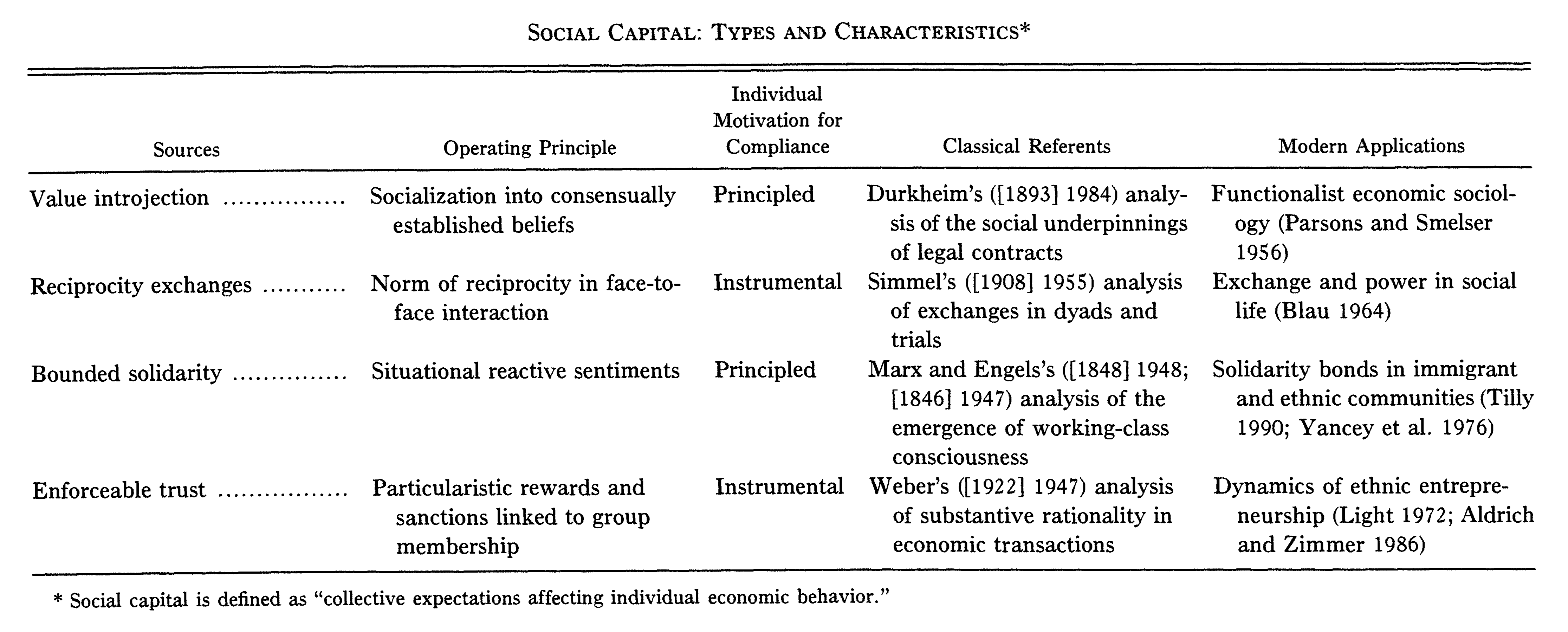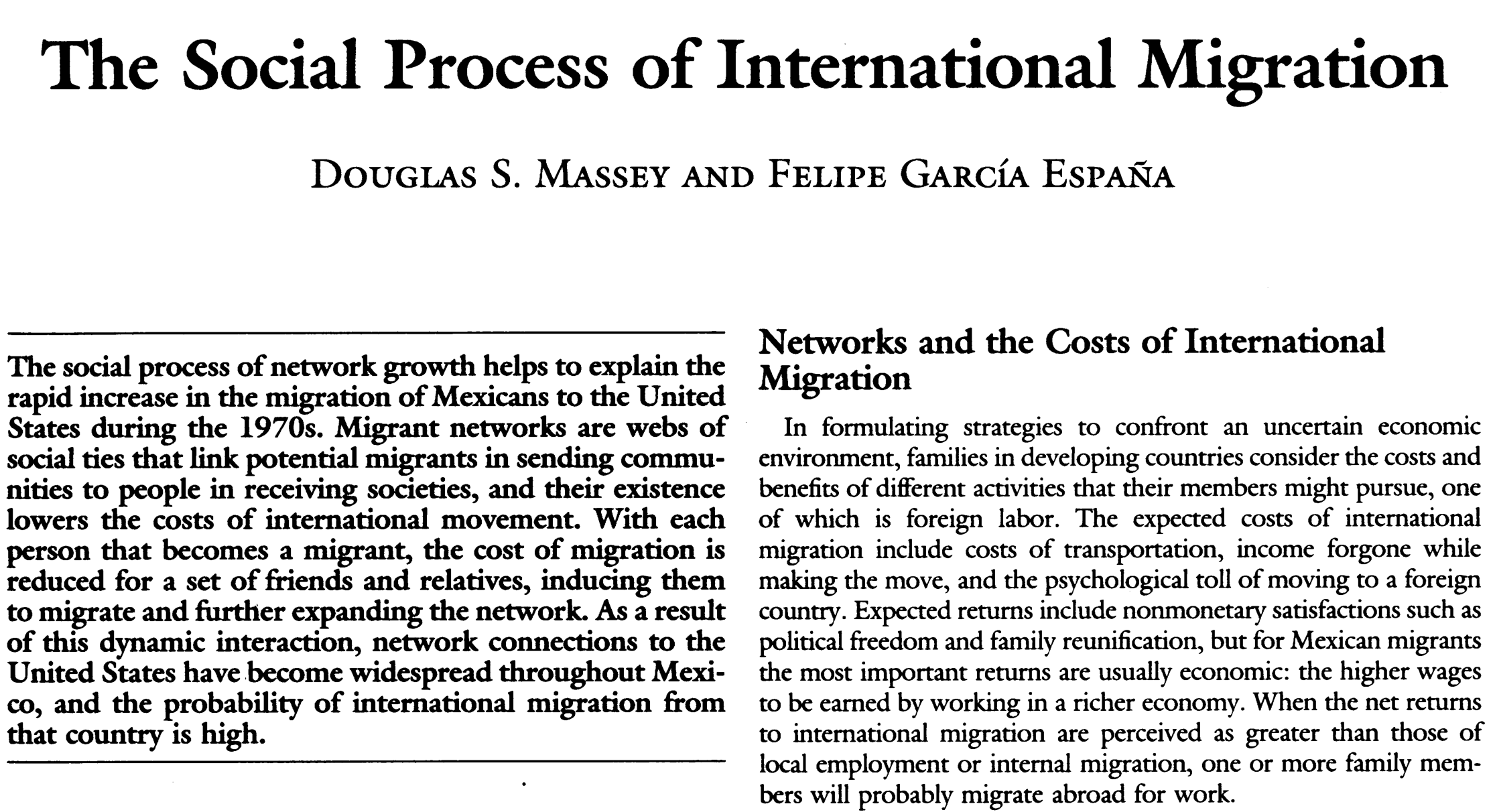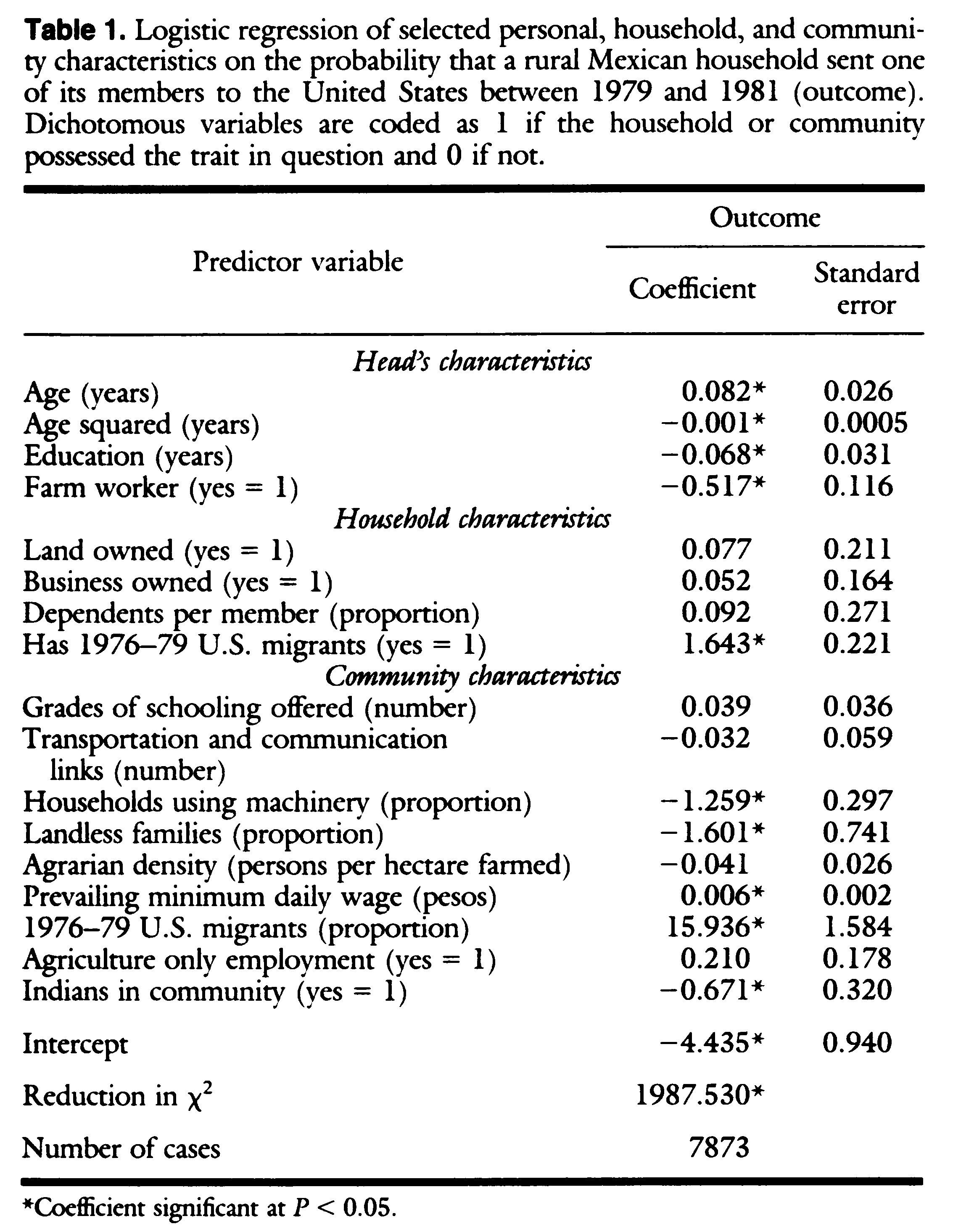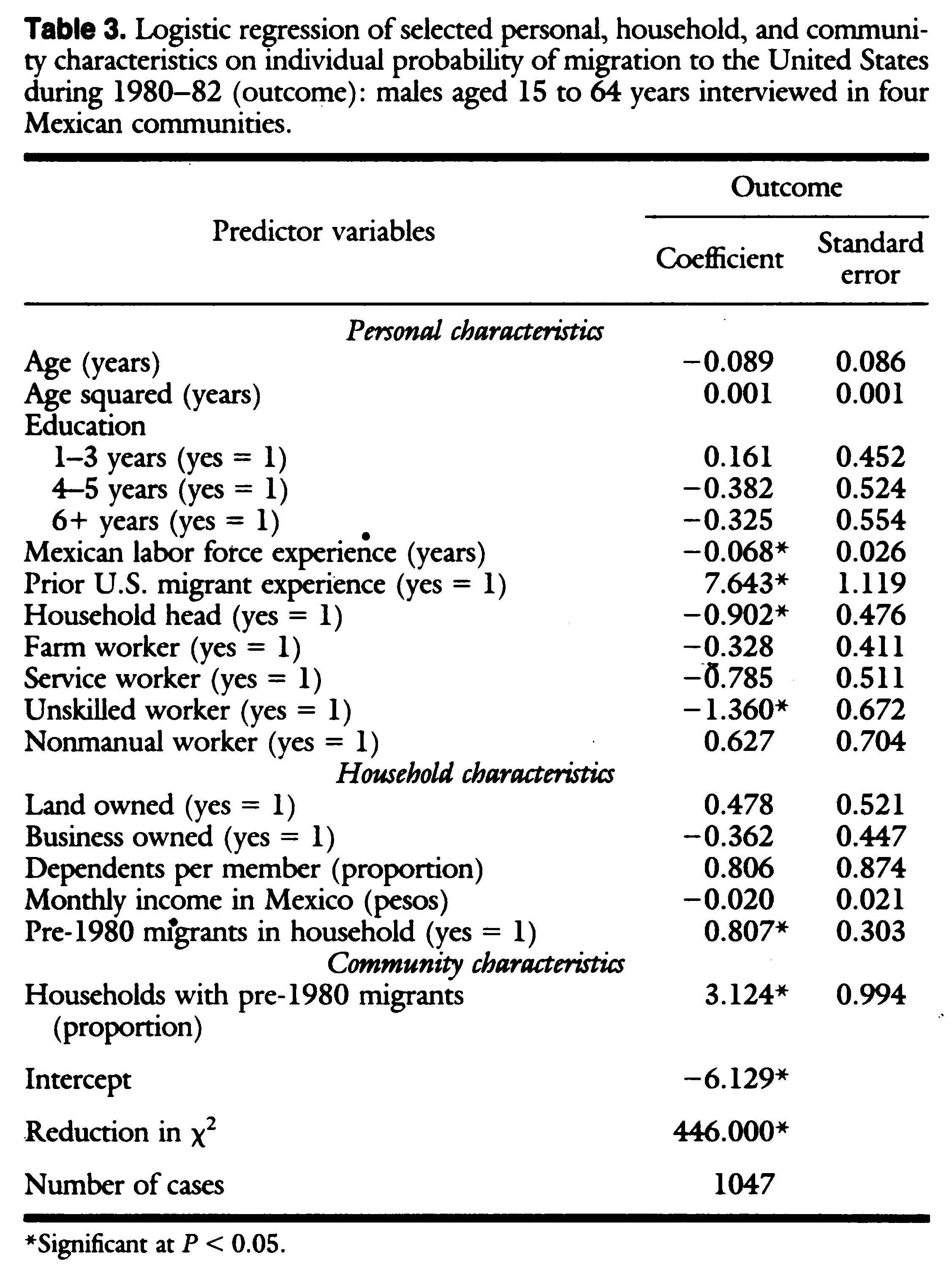Theories of International Mobility and the Incorporation of Immigrants
Class 3: Social and Political Determinants of Migration
Portes & Sensenbrenner (1993)
Social Capital
- "those expectations for action within a collectivity that affect the economic goals and goal-seeking behavior of its members, even if these expectations are not oriented toward the economic sphere."

Proposition 1
- The more distinct a group is in terms of phenotypical or cultural characteristics from the rest of the population, the greater the level of prejudice associated with these traits, and the lower the probability of exit from this situation, then the stronger the sentiments of in-group solidarity among its members and the higher the appropriable social capital based on this solidarity.
Proposition 2
- Social capital arising out of situational confrontations is strongest when the resulting bounded solidarity is not limited to the actual events but brings about the construction of an alternative definition of the situation based on reenactment of past practices and a common cultural memory.
Proposition 3
- As a source of social capital, enforceable trust is directly proportional to the strength of outside discrimination and inversely proportional to the available options outside the community for securing social honor and economic opportunity.
Proposition 4
- The greater the ability of a community to confer unique rewards on its members, and the more developed its internal means of communication, then the greater the strength of enforceable trust and the higher the level of social capital stemming from it.
Proposition 5
- The greater the social capital produced by bounded solidarity and community controls, then the greater the particularistic demands placed on successful entrepreneursand the more extensive the restrictions on individual expression.
Proposition 6
- The longer the economic mobility of a group has been blocked by coercive nonmarket means, then the more likely the emergence of a bounded solidarity that negates the possibility of advancement through fair market competition and that opposes individual efforts in this direction.

- "The volume of Mexican migration to the United States is not strongly related to fluctuations in relative wages and the upswing of migration in the 1970s occurred in spite of falling real wages, rapid inflation, and high unemployment in the United States and increasing wages and relatively low employment in Mexico."



The Annals of the American Academy of Political and Social Science, 510: 60-72 (1990)
- "Immigration is far more dynamic than standard economic analyses suggest because it tends to feed back on itself through social channels. As a result, immigration has become progressively independent of the economic conditions that originally caused it and alters social structures in ways that increase the likelihood of subsequent migration."
- "Migrant networks are sets of interpersonal ties that link together migrants, former migrants, and nonmigrants in origin and destination areas through the bonds of kinship, friendship and shared community origin."
How do migrant networks reduce costs of migration?
- Direct monetary costs of trip
- Information and search costs for new job
- Opportunity costs of foregone income
- Psychic costs of leaving home
Curran & Saguy (2001)
- social embeddedness
- circular and cumulative causation
- relative deprivation